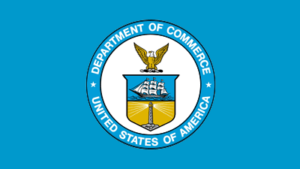
Details Can Be Essential to Estate Planning
Dec 11, 2015
Virginia Beach, VA (Law Firm Newswire) December 11, 2015 – When handling one’s estate planning, it is important to prepare the relevant documents and ensure that they can be accessed by trusted family members prior to one’s death.
Such documents can include wills, health care directives, and lists containing passwords to online accounts. However, there are other less common items that some family members may need when their loved one dies. One such item is military discharge papers.
John J. Scroggin, who manages a tax business and estate planning firm in Atlanta, knew that his father wished to be buried in Arlington National Cemetery in Washington. When he telephoned Arlington, he was informed that he needed his father’s DD 214 in order to bury him at the cemetery. Scroggin did not know what a DD 214 was, and was told that if he was unable to locate it, his father would be placed in cold storage while they searched for the military discharge papers. Following a frenzied search, he found the DD 214 in a book where it had been used as a bookmark.
“A well-drafted estate plan covers all eventualities, including disability, and can provide one and one’s family members with peace of mind,” said Andrew H. Hook, a Virginia estate planning attorney with Hook Law Center, with offices in Virginia Beach and northern Suffolk.
Preparing for one’s death can be a time-consuming and laborious process. Erik A. Dewey, a writer from Tulsa, Oklahoma, wrote a book titled, “The Big Book of Everything,” which offers advice on getting ready for the end of life. It was challenging for him to go through much paper and online information following his father’s death at age 65. In the book, which can be downloaded online for free, he writes about his experience and all that he learned.
Although getting one’s personal and financial affairs in order is especially essential for the elderly, it is recommended for everyone. The most basic estate planning document is a will, which distributes one’s assets after one’s demise. Another option is to transfer one’s assets, such as one’s house, bank accounts and stocks, to a living trust, and after one’s death, the assets will be transferred to the beneficiaries.
With regard to medical decisions, one can have a living will and/or a durable health care power of attorney. A living will, which in some states is referred to as an advance directive, allows one to state one’s wish to refuse to be placed on life support if there is no chance of recovery. However, a durable power of attorney for health care covers all decisions pertaining to health care, and only applies when one cannot make decisions for oneself.
Learn more at http://www.hooklawcenter.com/
Hook Law Center
295 Bendix Road, Suite 170
Virginia Beach, Virginia 23452-1294
Phone: 757-399-7506
Fax: 757-397-1267
SUFFOLK
5806 Harbour View Blvd.
Suite 203
Suffolk VA 23435
Phone: 757-399-7506
Fax: 757-397-1267
http://www.hooklawcenter.com/
- Financial elder abuse may be fastest growing type of crime in U.S.
Financial elder abuse has been described as the fastest growing type of crime in the U.S. To avoid having this happen with your senior loved one, it is important to be aware of the dangers. A study conducted by the Journal of General Internal Medicine revealed that 60 percent of the Adult Protective Services (APS) […] - A retirement savings account can include health savings accounts
As companies divert the costs of health insurance to their employees, health savings accounts (HSAs) and health reimbursement accounts (HRAs) have become increasingly popular. According to the Employment Benefit Research Institute (EBRI), adults in the U.S. retained $23.8 billion among 11.8 million HSAs and HRAs. This represents an increase of 2,725 percent from 2006. HSAs […] - What men can learn from women about saving for retirement
Although men’s 401(k) balances tend to be larger than women’s, there is evidence to suggest that women may outperform men where retirement planning is concerned. Vanguard observed that at the majority of income levels, women are more inclined to take part in their employer’s 401(k) plan, more inclined to enroll in the plan on a […] - The new reverse mortgage rules: Are they right for your retirement plan?
The reverse mortgage rules that became effective on Aug. 4, 2014 should address any concerns held by married couples who are contemplating taking out such loans. Reverse mortgages, which are also called Home Equity Conversion Mortgages (HECM), are home loans for those who are age 62 or older that allow them to convert the equity […] - Spending down Medicaid assets safely
“Spending down” your assets is the term used to describe the reduction of your assets in order to qualify for Medicaid. There are some assets that are not required to be sold or spent in order to be eligible for Medicaid. These are called noncountable assets, and they include the home, a car, household goods […]





